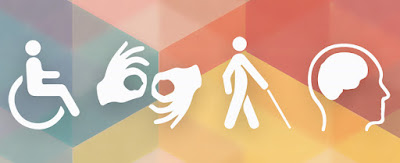Key Points
- If you have a physical impairment as a parent, you and your family are probably adaptive and capable of overcoming difficulties in daily life.
- You can obtain assistance with routine parenting duties.
- Local services or the NDIS can provide you with assistance.
- Contact an NDIS local area coordinator or a disability advocate if you require assistance.
Parenting
with a physical disability: rewards
Parenting a
child with a physical limitation has many benefits. These frequently result
from how families and kids respond to the circumstance.
For instance,
you might discover that you're raising kids who are more kind and kind,
perceptive and responsive to others' needs, tolerant and compassionate, mature,
and appreciative of their health. They may also be more responsible,
independent, responsible, and sympathetic.
Additionally,
the dynamics of your family may promote the growth of positive self-esteem in
your kids. That's because they develop a sense of value from learning about
responsibility and realizing how much they contribute to family life.
Parenting with a physical
disability: challenges
Every family has difficulties as
their kids mature and develop. However, parents who are physically disabled
could face unique challenges.
Your physical impairment might
not be one of the main obstacles; rather, it might be how other people perceive
it.
There could be some physical
limitations or restrictions for you. For instance, it could be challenging to
carry your infant without assistance or perform some daily care activities,
such as feeding and cleaning. Chasing youngsters around could be more
challenging if you're in a wheelchair.
Additionally, there are social and economic difficulties, such as finding employment or gaining access to resources that can help you provide your kids with what they need to grow and develop.
Managing life as a parent with a
physical disability
If you have a physical
disability, you're usually adept at finding clever and valuable solutions to
whatever problems you run against.
You might discover that in your
regular contact with your children, you emphasize verbal advice more than
physical direction. Even your younger children are undoubtedly aware that they
will be safe if they follow your instructions and pay attention to you.
Additionally, honest communication becomes increasingly crucial as your kids
get older in all facets of family life, including discipline.
It's a good idea to be upfront
and honest about your impairment with your kids. This will make it easier for
them to comprehend any physical impairments you might have, such as the reason
you need a wheelchair or why you tire easily. Children are very good at
adapting to their surroundings, and your children will change their behavior to
suit both their needs and yours.
Support for parents with a
physical disability
You can get assistance with selfcare activities to carry out parenting tasks like feeding, bathing and
dressing. The type of support you need depends on your disability, but there
are many services, technologies and assistive devices
that can help with daily family life.
If you need assistance with selfcare activities in Australia, contact a disability advocate or an NDIS local
area coordinator.
A disability advocate is
someone who can help parents say what they want for their families. They can
also help parents find and understand information about supports and services.
An NDIS local area coordinator (LAC) is someone who works with the NDIS. A LAC can help
parents understand how the NDIS works. They can also help parents find and use
community supports, services and activities, as well as other government
services.
You can also speak to your GP
about local support services and health or disability professionals. This might
include occupational therapists, who can give you ideas for adapting your
physical environment to your particular needs.





No comments:
Post a Comment